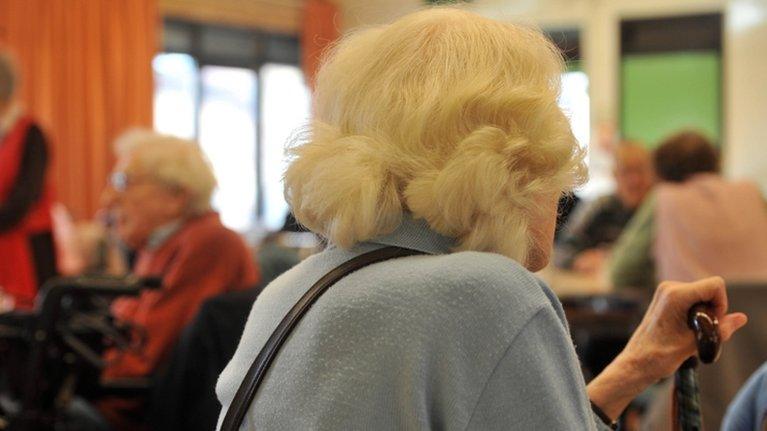Women's Voluntary Service: 'The army Hitler forgot'
- Published
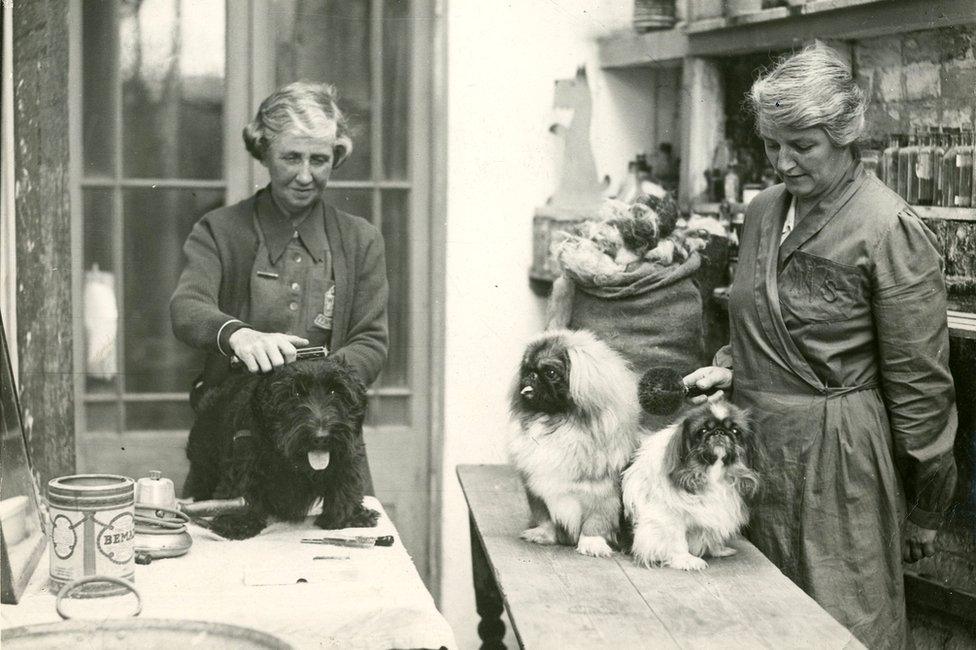
Dogs were combed for their "warm and hardwearing wool" which would be spun into yarn and knitted
Knitting with dog hair, transporting toddlers in donkey carts and dispensing tea and sympathy are just some of the everyday activities revealed in archive images of the Women's Voluntary Service (WVS) during World War Two.
The service, founded in 1938, was originally set up to train women to be able to help with air raid precautions.
It soon developed into running emergency rest centres, feeding, first aid, and assisting with the evacuation and billeting of children.
The organisation - now known as the Royal Voluntary Service (RVS) - is attempting to raise enough money for more than 300,000 pages of diary entries to be digitised.
If successful, the collection will be made available to the public online.
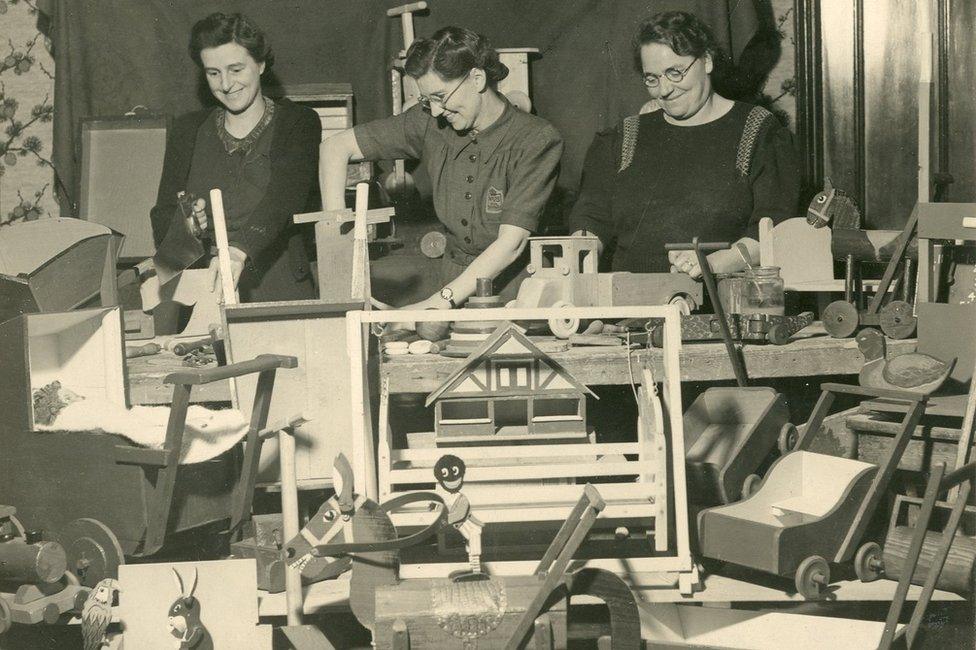
Women in the WVS turned their hands to most things, including making toys for children who had been billeted with strangers

A diary entry recalls a demonstration of spinning and knitting of dogs' combings held at Harrods. The Portsmouth group's contributions were highly praised at the event, which was organised at the request of the Board of Trade

Diary entry: December 1943. Portsmouth division of WVS
ARMY MENDING
During November garments dealt with numbered 263. Two new units are now sending their mending, but one of the previous ones had left the district. A mending class, to teach the men to mend for themselves is held in the Headquarters of one unit, and the men are becoming quite enthusiastic about keeping their garments in repair, and learning all the various ways to do so.

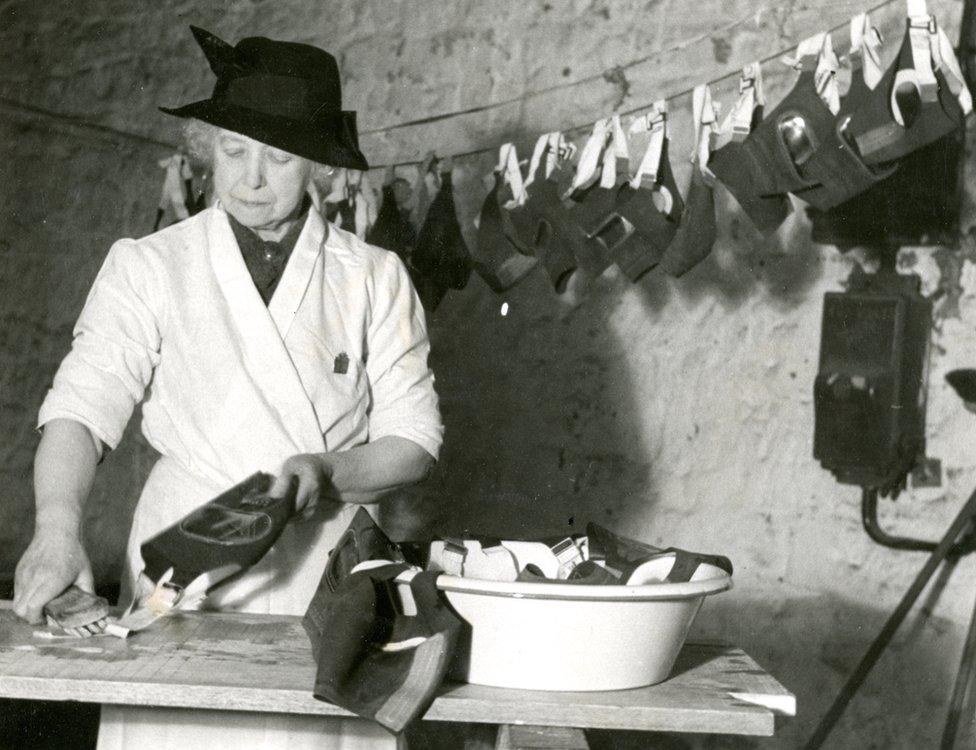
April 1941 was a particularly busy month in Bath. Volunteers fitted 80 children with masks and issued 205 helmets for babies. The centre was also responsible for serving 3,350 meals and helped coordinate housing for more than 9,000 people made homeless following raids
The archive, which has Unesco status, is ranked alongside other historical texts such as the Doomsday Book and the Death Warrant of King Charles I.
"It's often the quiet voices of history which are the most revealing," says historian Ruth Goodman.
"They can be easily overlooked amongst the clamour of parliamentary speeches, gunfire and official pronouncements, but the diaries and letters of a host of less celebrated lives speak of the true temperature of the times.
"It is these unassuming thoughts, feelings and reports which tell us what was really happening behind the rhetoric."
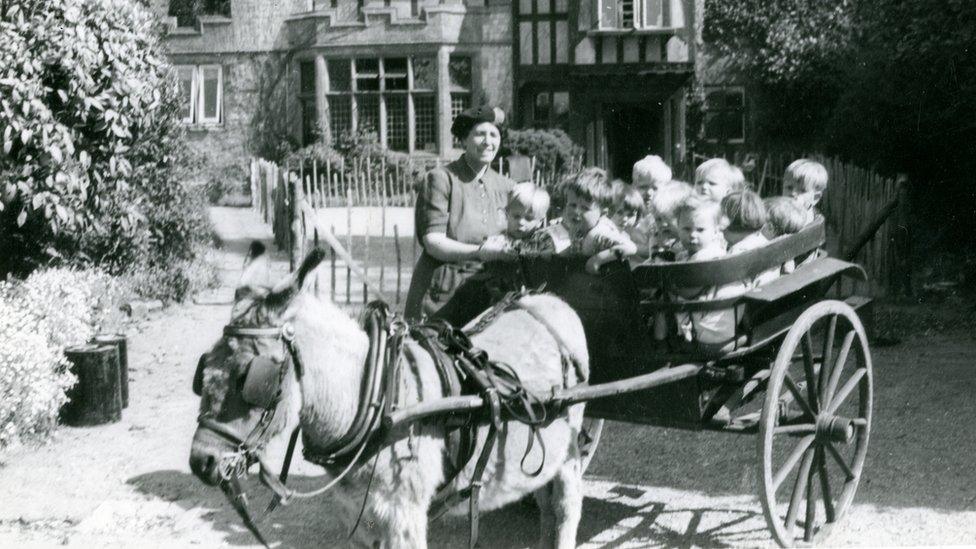
Children evacuated to the countryside were often helped by the WVS, who would arrange their billets - and even transport them in donkey carts
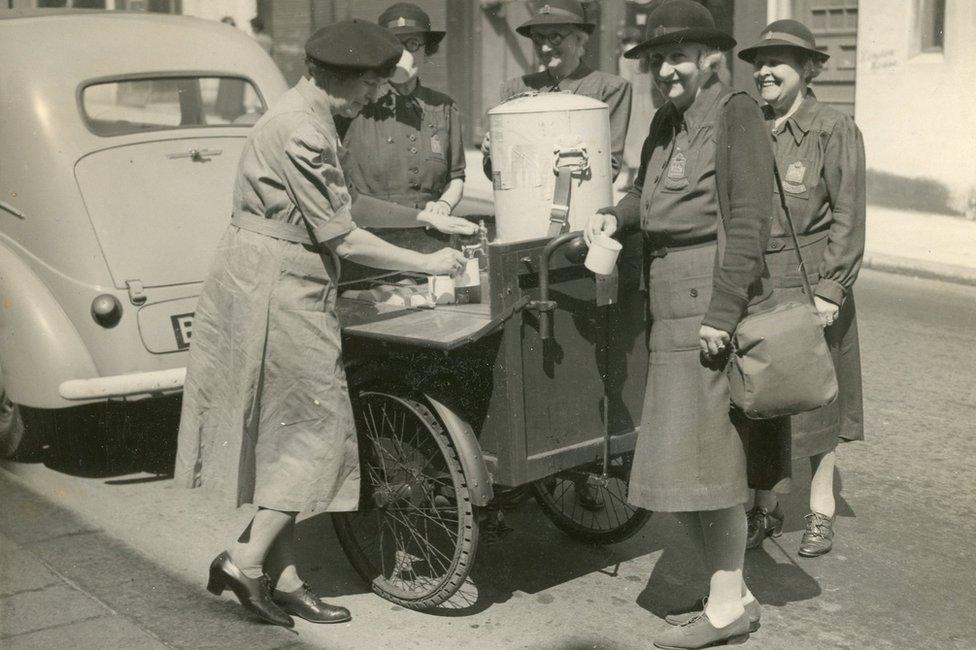
Mobile canteens could provide tea and good company wherever it was needed

Diary entry: June 1942. Bath division of WVS
KNITTING
The amount of knitting for the Merchant Navy has increased. We have sent off two parcels; containing a total of 54 garments (sweaters, scarves and socks).
Very unfortunately one of the parcels, (a hessian sack packed full) appears to have suffered severe pilfering en route. A sack, which appears to be the one we sent, arrived 10 days later with only two scarves in it and nothing else.
We are making enquiries, and will have to claim against the Railway unless the things are found.
Early in the month, we received a request from the local Naval Comforts Committee, to utilise some redundant seaboot stockings by having them unpicked and re-knitted into polo-necked jerseys. The number to be dealt with was considerable, but knitters were quickly forthcoming. All the wool was distributed, and much has already been returned in its new guise.

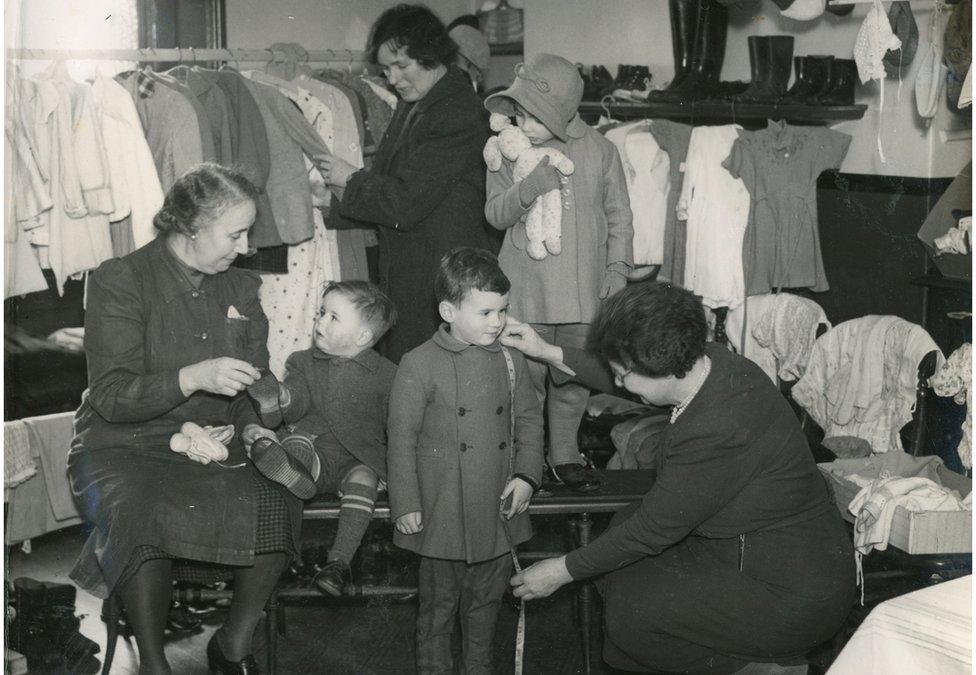
Children who had been bombed out of their own homes often needed clothing
The Hidden Histories of A Million Wartime Women, external project tells stories of "everyday heroism" from female volunteers from more than 2,000 cities, towns and villages across Britain.
By 1940, one in 10 women was a member of the WVS. "They held the country together working tirelessly on the Home Front, but now they have been forgotten," the modern-day RVS says.
"They modestly refused recognition in their own time and their voices, those of ordinary women from our shared past, have now fallen silent."
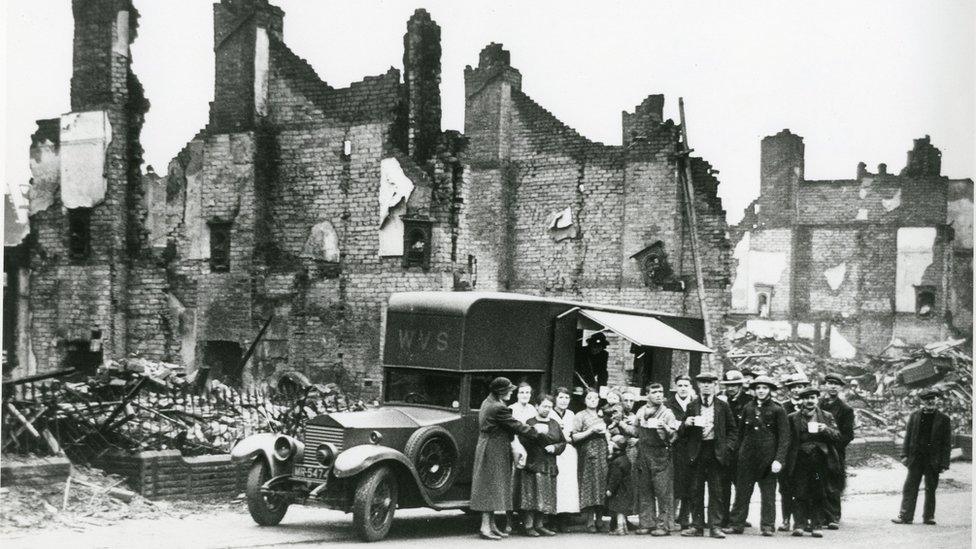
Women from the WVS worked closely with air raid wardens, and helped to rehome people who had been bombed
Matthew McMurray, archivist at the RVS, says he's spent six years sorting through "tens of thousands of pieces of fragile paper" to get to a point where the documents can be digitised.
"We want to be able to share these tales of everyday heroism and those million ordinary women who made the difference," he adds.
The RVS has set up a page on crowd-funding website Kickstarter , externalin an attempt to raise £25,000.
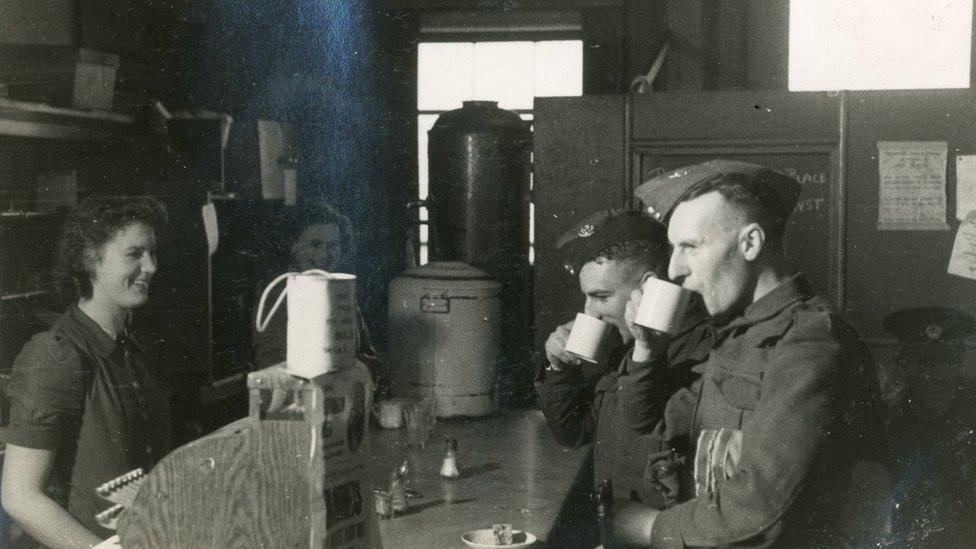
Hot drinks and friendly faces were offered by the WVS
- Published20 May 2013
